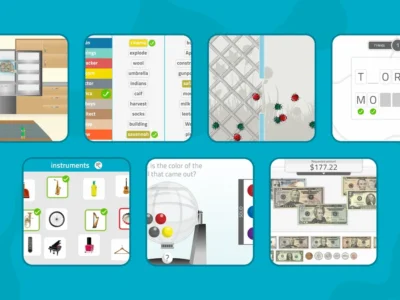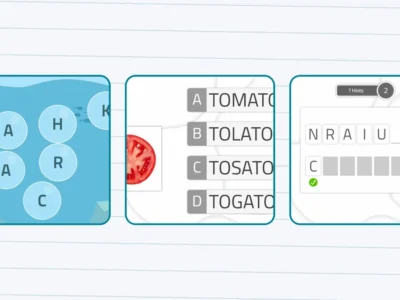The specialist in educational intervention and autism treatment Irma Fernández Hernández explains to us how important it is to have a support network in families where a member has a neurodevelopmental disorder.
Every wait is full of hope and even more so when it comes to a baby. When a child with a neurodevelopmental disorder arrives, it impacts the entire family, whether parental or single-parent, functional or dysfunctional, of any kind, having to go through inevitable grief.
If we analyze the day-to-day of that family unit, the idea of what is expected of it is confirmed: to shape for society a citizen who contributes to well-being, development and personal and collective improvement, for the common good. Achieving this, without a doubt, requires a support network that helps fulfill the purpose of shaping an individual competent and capable of achieving any type of personal and collective improvement, actively collaborating.
The importance of lifestyle
The demand of everyday life forces us to adopt lifestyles that can become destructive on a small or large scale, in the short, medium or long term, in aspects such as nutrition, the environment and the relationship with everyone around us.
Fast food is delicious, its presentation eye-catching, and it is easy to acquire and consume, which makes it a favorite for the vast majority. Many working parents feel less guilty allowing and encouraging this type of nutrition in their children. However, it is increasingly difficult to give up the addiction it generates. If any of their children experience sensory peculiarities related to taste and accept nothing other than “nuggets” or milk (which seems harmless), parents or caregivers will feed them only that.
The lifestyle we unconsciously build generally goes against nature, first, of the child himself, followed by the environment around us. That is, we do not have time to motivate the child and teach them to plant a plant and turn the battle of keeping them from eating the soil into an opportunity to learn about the developmental stage they are going through. And moreover we prefer to use manufactured essences as palliatives to induce sleep, keep the environment free of unpleasant smells or buy sweets to entertain them.
The need for adaptation and for a support network
Humans have a brain equipped with a whole kit responsible for carrying out complex actions that functions before birth. The family environment provides each child with countless social cues that allow them to adapt, learn, relate with other people and continue their learning.
People with a neurodevelopmental disorder, specifically autism, have a kit that works differently, so the environment must resort to some resources to achieve what is naturally expected.
The demanding pressures of today’s society
The struggle to fit into a highly demanding and changing society with fluid standards is endless and can be exhausting, leaving a feeling of frustration. This volatility ruins the effort of people who live with a neurodevelopmental disorder, bringing their families to the brink of collapse.
The importance of the support network in neurodevelopmental disorders
Hence the need to create a support network that offers basic, reliable information about the importance of:
- adequate nutrition rich in nutrients that provides substantial benefits
- the benefits of interacting with nature using the hands for its care, preservation and transformation
- providing spaces and strategies that promote mutual support relationships, that is, discovering what the person who lives with a disorder teaches and contributes, such as those moments of peace when being with themselves and that, given current circumstances, the neurotypical society needs at some point.
The person who lives with a disorder gives us that natural support network without asking for it, they are simply there at our disposal, because no one has said that our lifestyle is the right one, since if it were, the rates of stress-related illness, suicides, alcoholism, drug addiction, etc., would be declining.
Society expects us to be competent in everything. An idea that forms a vicious circle in families. For example, the everyday stress of a person who cares for every member of their family taking care of physical, emotional and social well-being, and stops focusing on who is who, what each being naturally feels and thinks, giving way to what they should be, say, think and do, trying to keep up until reaching the model of an effective citizen. This is one hundred percent stressful, and it is worth remembering that every child lives through their parents’ emotions.
Adaptation to the environment is important. For someone who lives with a neurodevelopmental disorder it may not be so. The family longs to be included and, to achieve it, being part of a support network will help manage the complications that each goal entails.
Difficulties associated with the labor market
It seems that categorizing is indispensable for the functioning of any group, thus people are classified as capable and incapable. Some determine how the world should move and others make sure it moves.
That is why it is increasingly difficult to successfully include people with a condition in the workforce, since opportunities are tied to abilities, skills and efforts. This is where our dreams as parents become impossible and the support network must contain parental demoralization.
Resources to achieve the expected goals
Social stories, pictogram anticipators, agendas and schedules are resources that make it easier to flexibilize thinking (executive functions) and get them to accept trying other foods, even eating popsicles that slightly numb the oral cavity to make them taste new foods and, above all, nutritious ones. It is difficult to “mask” homemade food to make it look like what we buy at the supermarket or other establishments and have them accept it due to the hyperreactive response, however, it is worth trying.
Let us make an alliance with nature, validate the naturalness of nature using lettuce leaves that induce sleep, (perhaps making infusions for a bath), lavender, rosemary or cinnamon are excellent aromatics and water, an invaluable resource for playing and, in turn, the best opportunity to share knowledge.
What is the support network?
A group of people who share the same purpose, with a flexible, consistent, sustainable and available organization, capable of supporting the emotionality of each member.
It is a living community that knows the characteristics of the condition that unites it and shares experiences with the intention of guiding and collaborating to improve the quality of life of its members. Because that should be the supreme goal for everyone.

Parents whose child lives with a disorder frequently feel alone, misunderstood, judged, singled out and excluded by the dominant (neurotypical) society.
The recommendation is to seek this support network, and if it does not exist, form one that provides strength, warmth, respect and inclusion.
The well-being of members
Well-being is absolutely subjective.
Well-being for a person with a neurodevelopmental disorder
For the person who lives with a neurodevelopmental disorder such as autism, it may mean:
- extending over time the satisfaction it gives them,
- lining up toys,
- keeping the order of their favorite objects,
- watching a movie many times,
- smelling people’s hair
- and so on.
Well-being could also be related to eating chocolates and foods that alter them or spending most of their time in their room reading comics.
Well-being for caregivers of a person with a neurodevelopmental disorder
For caregivers, well-being is usually related to leading a life as close to “normality” as possible due to the uncertainty that comes with the hope that their child will be fine even when they themselves are no longer there.
Thus, they are the ones who must begin to weave the threads to form this support network followed by siblings, cousins or neighbors. Every support network is responsible for updating information about the condition that composes it, fighting for their rights, accompanying them in their duties and working to obtain employment opportunities.
The support network as a source of development and personal improvement
Integral development for any human being encompasses the emotional, physical, family, social, intellectual and financial aspects. For those who live with a neurodevelopmental disorder it is evident that, to a large extent, they depend on the support network they have to achieve this development and, to another extent, on their own abilities.
The family must seek the autonomy of its members in the mentioned aspects so that they reach the development to which we are all entitled. This is how every support network begins.
You may now ask yourself… and people who require very noticeable help, will they be able to achieve the development being discussed? The answer is yes. It requires a gigantic, collaborative effort that begins within each cell and extends throughout. In this way it is possible to envision a personal improvement that generates an impact in the context to which they belong, starting with the support network itself. Not all of us are meant to be engineers, architects or lawyers, but we are meant to be successful within each individual’s possibilities.
Conclusions
All conditions in their own core are exactly the same. They simply appear in their different manifestations according to precise peculiarities in their personal field. The frequency of affection, commitment and accompaniment offered by any support network achieves important advances.
Observing the child, finding their talent, connecting with their being, benefits everyone. We all learn from each other. It empowers new projects, accelerates the control of their own personal instructions through Mindfulness.
The goal is to align more deeply with the principles of nature in the face of dispute, antagonism and the difficulty of the common. Where things are not working, provoke the changes that are necessary. Find the strength, resilience and patience to form a support network when it is an option.
References
- Lafuente, A. (coord.). (2020). Cómo autocuidar(nos). http://laaventuradeaprender.intef.es/documents/10184/127257/Guia+Autocuidarnos.pdg/9e81972a-589b-451f-b496-599d6d6da015
- Bauman, Zygmunt. (2004). Modernidad líquida. https://catedraepistemologia.files.wordpress.com/2009/05/modernidad-liquida.pdf
If you liked this post about the importance of the support network in neurodevelopmental disorders, you might be interested in these publications:
“This article has been translated. Link to the original article in Spanish:”
La importancia de la red de apoyo en los trastornos del neurodesarrollo







 Intervention with NeuronUP for Cognitive Stimulation in Geriatrics
Intervention with NeuronUP for Cognitive Stimulation in Geriatrics
Leave a Reply